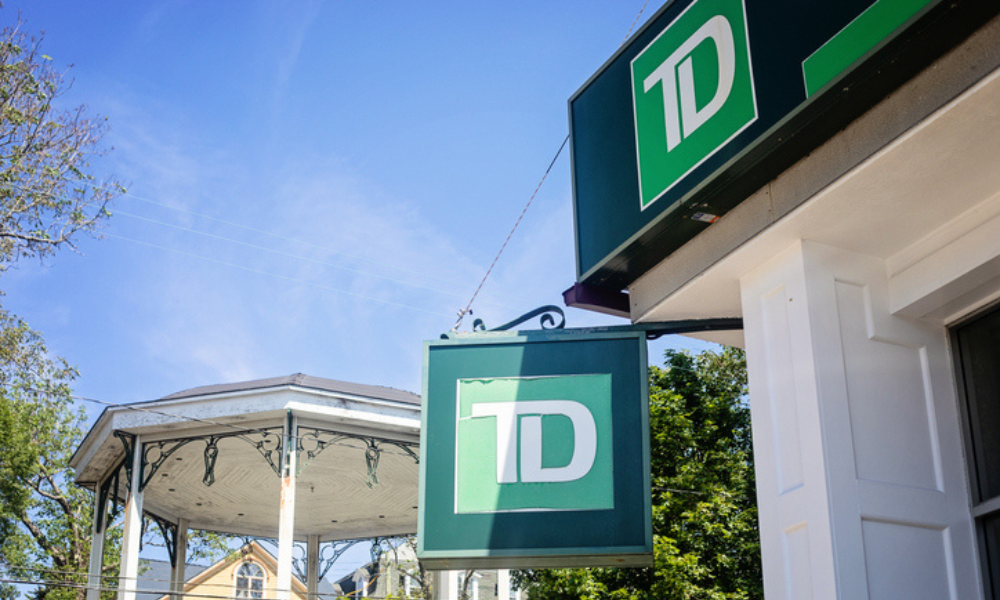Executives confronted at annual meeting as investors demand accountability for US compliance failures

Toronto-Dominion Bank’s top executives faced intense scrutiny from investors at the bank’s annual general meeting Thursday, as shareholders demanded answers about the lender’s anti-money-laundering (AML) failures and the fallout from its multibillion-dollar settlement with US authorities.
The meeting was the first time retail investors could directly question TD leadership since the bank admitted guilt in October to conspiracy to commit money laundering and agreed to pay more than US$3 billion in penalties.
The settlement, part of a wide-reaching investigation by US regulators and the Department of Justice, also included serious non-monetary restrictions, an asset cap limiting the growth of TD’s US retail operations.
TD board chair Alan MacGibbon described the episode as a turning point for the institution.
“The settlements were extraordinarily painful,” he said. “The Oct. 10 public consent agreements was the darkest day that we could have imagined it to be, and I apologize to all investors for how difficult this was and the consequences of the actions.”
Newly appointed CEO Raymond Chun and MacGibbon fielded a wave of questions from shareholders, including why compliance failures were allowed to persist, what reforms are being implemented, and how the bank plans to restore shareholder confidence amid a declining stock price.
“It is about changing our culture,” Chun said, responding to investor concerns. “A culture of accountability and a culture of curiosity within our front lines and our second lines to ask why and be more curious to all these issues.”
According to TD, the bank has already overhauled parts of its risk and compliance framework, made leadership changes, and is redesigning training programs for front-line employees. MacGibbon added that senior leaders are learning to better identify and escalate risk concerns internally.
Read next: TD Bank moves to dump US$9 billion in mortgages amid regulatory challenges
While TD works to satisfy US regulatory requirements, Chun said the bank is also conducting a strategic review focused on growth opportunities, particularly in its Canadian operations, which account for more than 75% of the bank’s total profit.
“Those businesses have tremendous momentum,” Chun said, pointing to areas like mortgages and retirement services. “The entire strategic review − a large portion of that is what we’re going to do to accelerate that momentum.” He noted that the bank recently launched an online mortgage application tool and brought in new specialists to assist clients with home buying and long-term financial planning.
The bank’s leadership has faced sustained pressure from investors over accountability. In recent months, TD announced an early departure for both MacGibbon and former CEO Bharat Masrani, and completed a significant board overhaul.
At Thursday’s meeting, five long-standing directors stepped down: Amy Brinkley, Colleen Goggins, Karen Maidment, Claude Mongeau, and Brian Ferguson. Several of them had held roles on key board committees overseeing risk and audit. Their departure follows criticism by US authorities last fall that the audit committee lacked sufficient banking experience.
In their place, shareholders voted in four new board members, including two with deep expertise in compliance and risk at major US financial institutions: Paul Wirth, former deputy CFO at Morgan Stanley, and Ana Arsov, a veteran in risk management at UBS, Morgan Stanley, and Lehman Brothers.
Two additional Canadian appointees, Elio Luongo (former KPMG Canada CEO) and Nathalie Palladitcheff (former Ivanhoé Cambridge CEO), also joined the board. A fifth director, Frank Pearn, former global chief compliance officer at JPMorgan Chase, is expected to be appointed in August.
Still, support for MacGibbon’s continued role has weakened. He was re-elected with only 57.7% of shareholder votes, and is set to step down later this year as the board searches for his successor.
Despite the executive reshuffling, shareholders rejected all proposals brought forward at the meeting. These included measures related to climate disclosure, the adoption of an artificial intelligence code of conduct, and transparency around employee language skills.
One retail investor even proposed removing Chun as CEO and dismissing Masrani from his post-retirement advisory role, but those motions were also voted down.
Make sure to get all the latest news to your inbox on Canada’s mortgage and housing markets by signing up for our free daily newsletter here.



